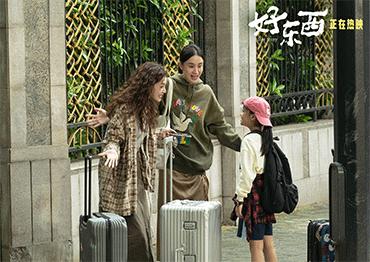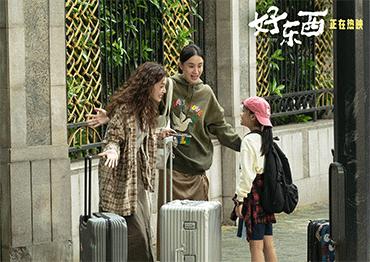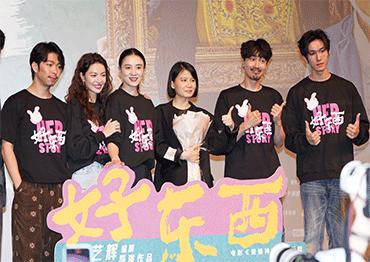Her Story’s Chinese title is Good Things (好东西), a small new media company where Tiemei works. A skilled screenwriter, Shao Yihui adds layers to the title: the Chinese character for “good” (好) can be separated into two characters “女子”, which means “women.” Additionally, the film features a line that resonates with the title: “Whatever makes you happy is a good thing.”
Since its first screenings in mid-November, Her Story has become one of the most discussed films on Chinese social media. Many viewers embraced the title’s wordplay, describing the film as “a really good thing.”
“I’ve watched many feminist films in recent years, but this one gave me a fresh perspective. It doesn’t just showcase feminism by shouting slogans or stereotyping characters,” said Yang Xiaochi, a 34-year-old industrial designer from Zhengzhou, Henan Province. “It neither overemphasizes women’s suffering nor glosses over their struggles.”
Yang went on to explain how the film’s humor made the experience unique: “I haven’t laughed so much with so many women in a cinema before. When we laughed together, I felt like the film was truly telling our story – so real and relatable.”
“This is definitely the best domestic film I’ve seen this year,” said 31-yearold Shi Qi, a Shenzhen-based overseas education consultant. “It’s sincere, heartwarming and powerful, filled with humor, insights and vitality. The film’s witty lines brought endless laughter from the audience. The director has created a beautiful, optimistic world that provides refuge for audiences.”
One of the most touching scenes is a montage in which Ye, the musician, asks Tiemei’s daughter Moli to put on headphones and guess the sounds of various samples she recorded. The imaginative girl describes the sounds in poetic ways – storms, thunder, tornadoes, dolphins jumping in the sea, crocodiles taking baths and hippos brushing their teeth.
These sounds, however, came from Tiemei doing housework – vacuuming the floor, using the juicer to prepare breakfast, frying bacon and picking up scattered crayons. The film juxtaposes Moli’s poetic interpretations of the sounds with her mother’s everyday chores.
This scene has been praised by both critics and netizens. “It’s the best scene in Chinese cinema this year,” said Xi Louchen on Douban. Another Douban user, Min Sijia, commented, “The daughter guessing sounds shows that the sounds of women are the sounds of the world. We’ve never noticed or defined these sounds this way before.”
“I love this scene the most. It feels as if these everyday domestic tasks have transformed into a grand symphony that encompasses the entire universe,so graceful and inspiring. This innovative cinematic language frees the single mother from the stereotypical narrative of misery. Here, the mother’s daily work possesses a transcendent power, holding the grandeur of the world itself,” said film critic Zhang Ting in an interview with NewsChina.
However, some critics and viewers said the film’s storytelling is somewhat loose, resembling a comedy routine filled with catchphrases and memes rather than a film with a solid narrative.
Despite these mixed reviews, word-of-mouth propelled the film to remarkable box-office success. By December 10, Her Story had earned over 555 million yuan (US$77m). According to projections from China’s leading ticketing platform Maoyan, the film is likely to gross as much as 706 million yuan (US$97m).

 Old Version
Old Version


